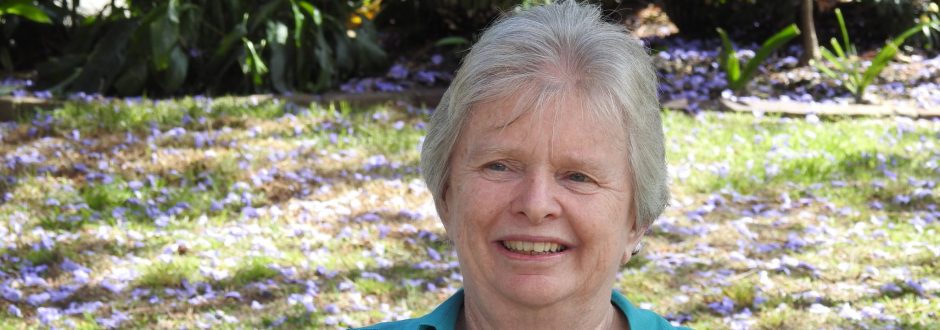Pope Francis, in announcing the Year of Consecrated Life, is calling on religious women and men to “wake up the world” with a spirit of hope and peace, writes Good Samaritan Sister Clare Condon.
BY Clare Condon SGS
Over the past weekend, as a religious congregation we celebrated the jubilees of our sisters who have lived 50, 60, 70 and 80 years of religious life. During our evening prayer together, we reflected on the scripture reading from Philippians 3:10-16: “I want to know Christ… Because Christ Jesus has made me his own”.
These are profound mystical words. They are personal words that Paul addressed to the people of Philippi. Paul was reflecting on his own journey of faith and relationship with this Jesus whom he was encountering. And for Paul, it was the Risen Jesus, the Resurrected One. Like us, he did not know Jesus in the flesh as a specific fellow human being.
During this season of Advent, it is fitting to celebrate lives lived out in fidelity to a call that was heard deep within one’s heart at the young age of a teenager or as a 20-year-old. It is also fitting to reflect on the hopes, dreams and expectations held back then; to return to that moment when a person first heard and felt the call of God, which sounded something like: come to me and I will make you my own.
One of the most quoted people at the moment is Pope Francis, and among his many statements, he has called for this coming year to be a Year of Consecrated Life. It will no doubt mean different things to different people. Perhaps for us religious women, it means simply to renew the commitment we made in our younger years and to have confidence in God’s call; to live out our fidelity to that call with a heart full of joy and peace, and constantly to name the reason for the joy that lives in us.
Earlier this year the Vatican Congregation for Religious wrote a letter entitled Rejoice! to the religious men and women of the world. It describes the call of religious life as a call to “be splendid witnesses, effective proclaimers, companions and neighbours for the women and men with whom we share a common history”. Such a prophetic approach to life is not confined to any age group. Older religious can bring a joy and a wisdom to all those they meet.
Yet, as people get older, sometimes the word “joy” can be elusive in daily living. The demands of the daily routine, the anxieties of perhaps losing some vital functions that had been taken for granted, or simply the loneliness of staying at home when in the past they were out and about amongst people, as well as other pressures of life, can weigh people down.
So can we be joyful people now in our older years? When others meet us do they see joyfulness?
Joy is not the superficial laughter that obviously annoyed St Benedict. In his Rule, he writes: “Speak no foolish chatter, nothing just to provoke laughter, do not love boisterous laughter” (RB4:53-54) – because such laughter is often at someone else’s expense.
Joy – which is a virtue strongly advocated in this Advent and Christmas season – arises from deep within, from knowing I am loved, by knowing Christ and the power of his Resurrection. Joy arises out of a lifelong interior pilgrimage of the heart where we touch into the mysterious nature of Christ’s presence and relationship with us. Psalm 33 prays: “Shout joy to the Lord, lovers of justice”. This is a paschal journey for each person and it is no doubt a different journey for everyone.
Pope Francis, in announcing this Year of Consecrated Life, is calling on religious women and men to “wake up the world” with a spirit of hope and peace. Our Good Samaritan Sisters who are celebrating their jubilees are vibrant women who know Christ Jesus and the power of his resurrection. They are women who have served and continue to serve God’s people with vitality and energy. They are women who have taught young children and teenagers, and who now visit the sick in hospitals and their homes; who attend to the needs of prisoners; who have left their homeland or comfort zone to minister in another culture or with an indigenous culture; who teach scripture, theology, liturgy, and music; who strive to be neighbour to one another, to those they meet, and to those who are in need.
As Benedict reminds us in his Rule, we know Christ Jesus in one another, in community life, in those we serve and in those who serve us. We know Christ Jesus in personal prayer and lectio, and in communal prayer. We know Christ Jesus because Jesus has made us his own. The seasons of Advent and Christmas give us the opportunity to refresh and renew our spiritual lives, knowing that it is Jesus, the Resurrected One, in whom we find our true joy.
